These soft and fluffy sultana scones are incredibly easy to make, and an excellent choice for breakfast or brunch. Homemade scones are a British specialty, and this version is filled with juicy raisins or sultanas for some added sweetness.
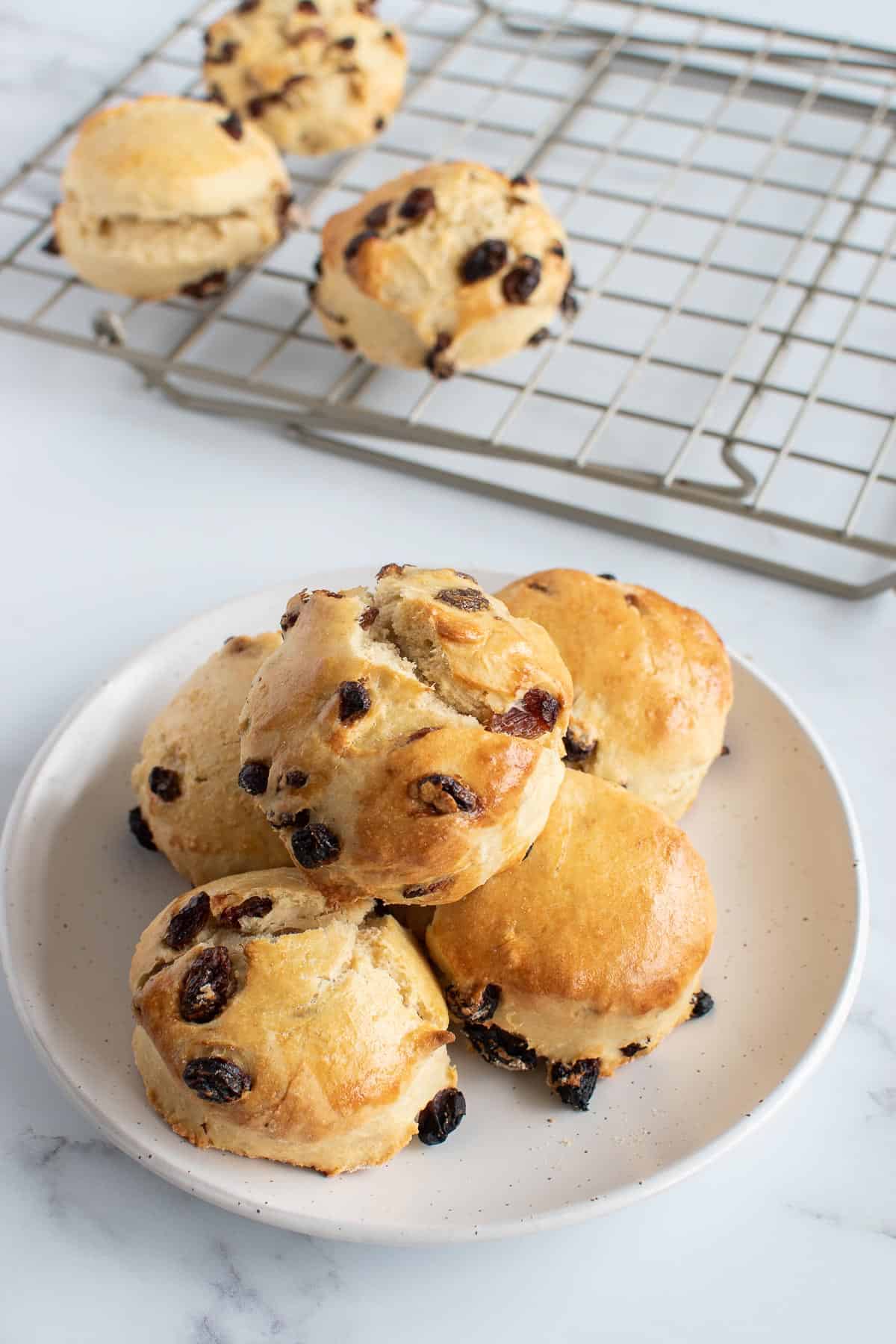
Jump to:
This post may contain affiliate links. Read more about it in the privacy policy.
Whether you're looking for a delicious treat for breakfast or brunch, or you're trying to prepare a traditional afternoon tea, these easy scones with sultanas are for you.
Sultana scones are quick and easy to make, taste amazing, and are really versatile. By adding raisins or sultanas, you can make them a little more interesting.
Handmade scones can also be gifted to friends and family, ideally accompanied by homemade jam.
Why you'll love it
- Easy to make
- Perfect fluffy scones
- The sultanas add a touch of sweetness
- Only 8 ingredients are needed, and most of them are pantry staples
- Dairy free, gluten free and vegan options
Ingredients
All-purpose flour: Also known as plain flour.
Sultanas: You can also use raisins instead.
Milk: Use any milk. Skim milk, oat milk and almond milk all work well.
Sugar: Adds some sweetness to the scones. You can omit it or reduce the quantity if you prefer.
Butter: Any butter works fine. You can also use a plant based butter substitute.
Egg: To brush the top of the scones. This is optional.
Salt: Enhances the flavors of the other ingredients.
Baking powder + baking soda: Gives the scones a rise. You will need both.
💡 TIP! You can also make sultana scones with self-raising flour. See the Variations section below for instructions.
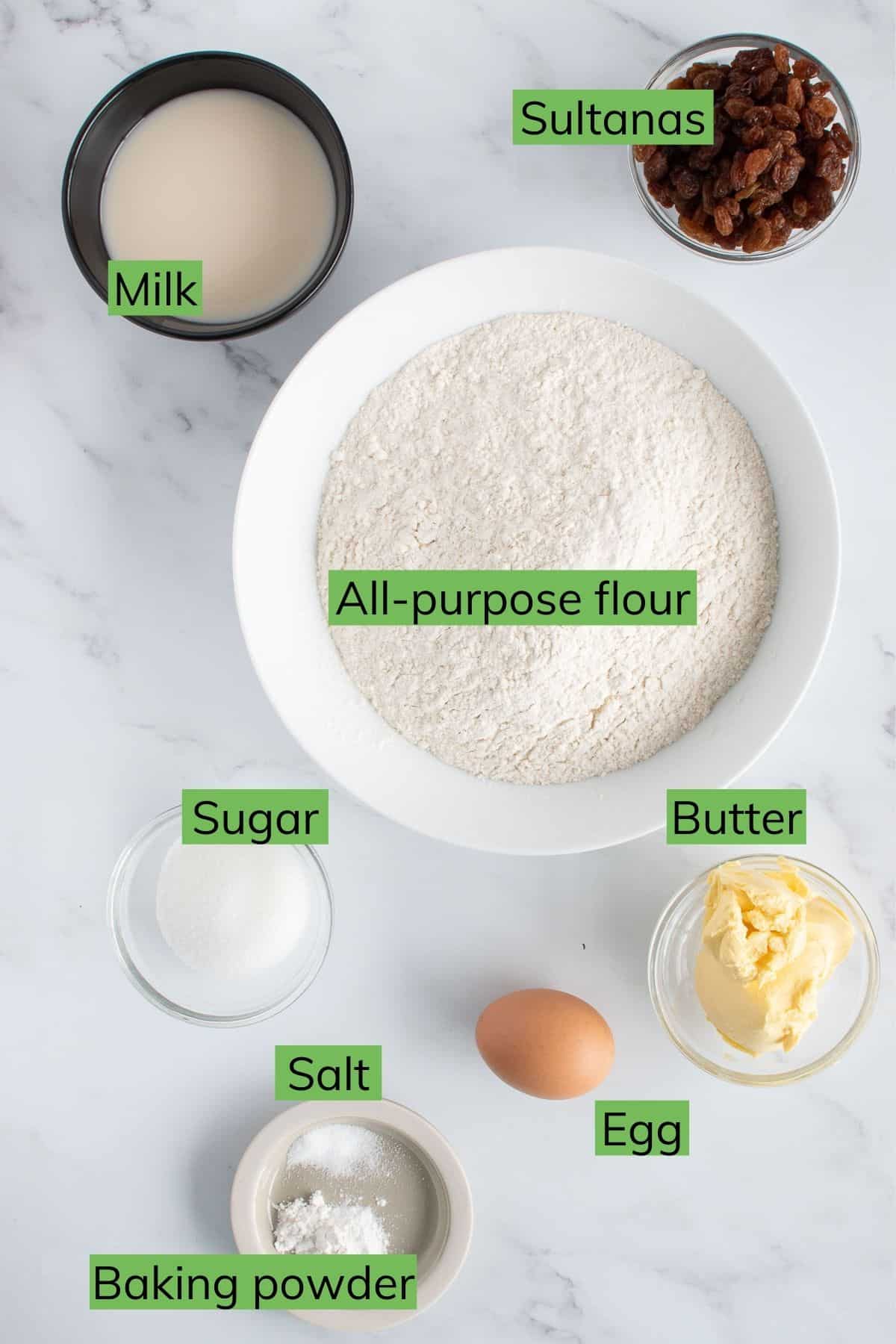
What are sultanas?
Sultanas are sometimes referred to as "golden raisins". They are small, light brown raisins, typically used in baked goods.
Sultanas, raisins and Zante currants are very similar, and can be used intermittently in baking. If you don't have access to sultanas, you can make these scones with common raisins instead.
Instructions
You can find full instructions + ingredient measurements in the recipe card at the bottom of this page
One: Add the salt, baking powder and sugar to the flour. Stir to incorporate the ingredients evenly.
Two: In a mixing bowl, add soft butter to the dry ingredients. Crumble the butter into the flour with your hands, until incorporated well.
Three: Create a well in the middle of your flour mixture. Add milk. Use a dough scraper, spatula or wooden spoon, and stir to quickly combine the liquid with the dry ingredients to form a dough.
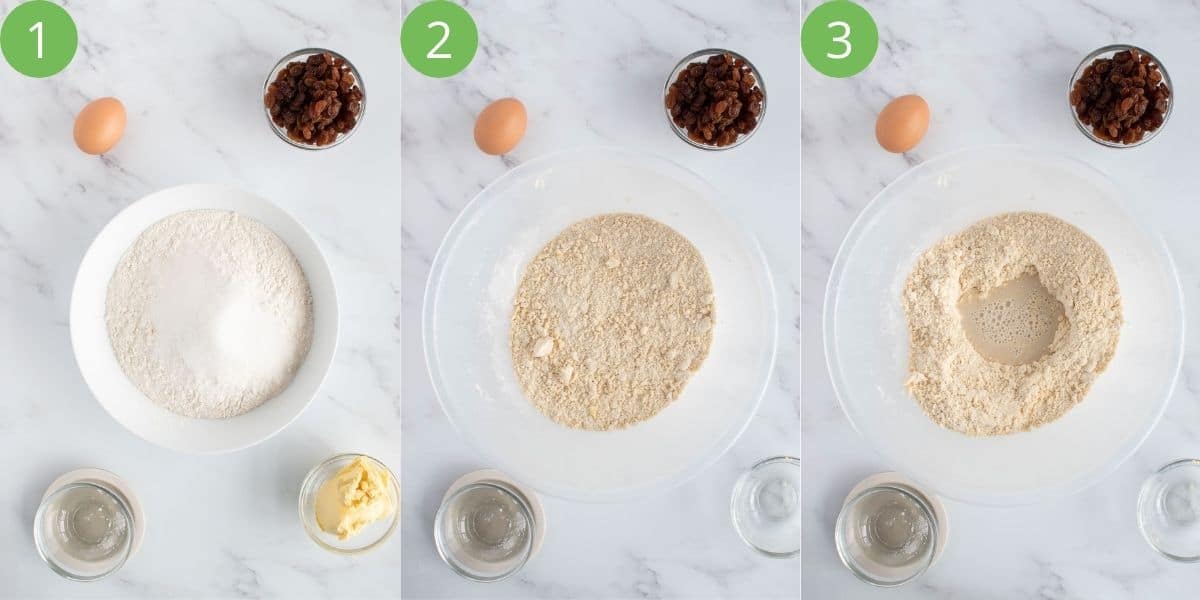
Four: Add sultanas to the dough. Place the scones dough down on a thoroughly floured surface, and pat it down into a 1 ½-inch or 4 cm thick patty.
Five: Use a dough cutter or cookie cutter to cut out scones. You should be able to cut out 4 scones from the dough. Then, reshape the unused the dough and press into a patty again. You should be able to make 8 scones in total.
Six: Place your scones on a preheated baking sheet covered with parchment paper. Optionally, brush the top of the scones with a whisked egg. This will give them a lovely golden color.
Bake the scones at 425 F / 220 C for 10-15 minutes, or until the tops are golden brown. Remove from the oven, and cool on a cooling rack.
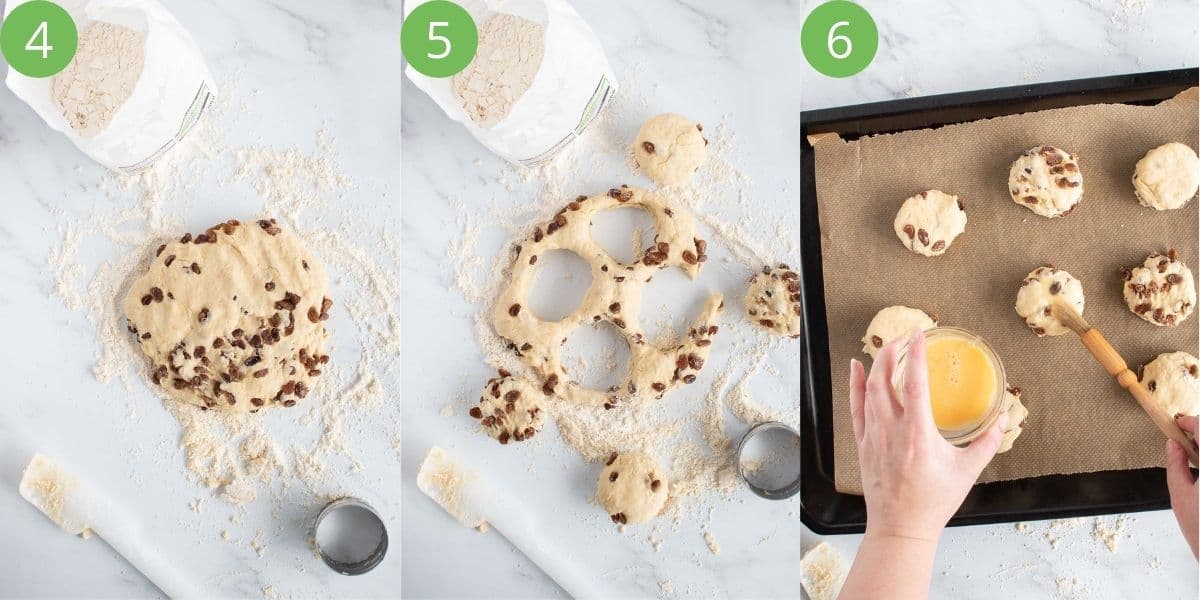
Top tips
- Make sure to use extra wide cookie cutters suitable for scones.
- Scones have a better rise if you use solid edge cutters, rather than cutters with a ridged edge.
- Preheat your baking sheet in the oven while the oven preheats. Then, place the sultana scones on the hot sheet to bake. This gives the scones an immediate burst of heat, which will make them lighter and softer.
- Don't over work the dough. Avoid kneading it more than needed, as this could make your scones extra dry or dense.
Serving suggestions
Any fruit scones, including sultana scones, are best served for breakfast, brunch, as a delicious treat, or for afternoon tea.
They are traditionally served with jam and whipped cream or clotted cream, but you can use any sweet spread or topping that you like.
Here are some of my favorite recipes to pair with sultana scones:
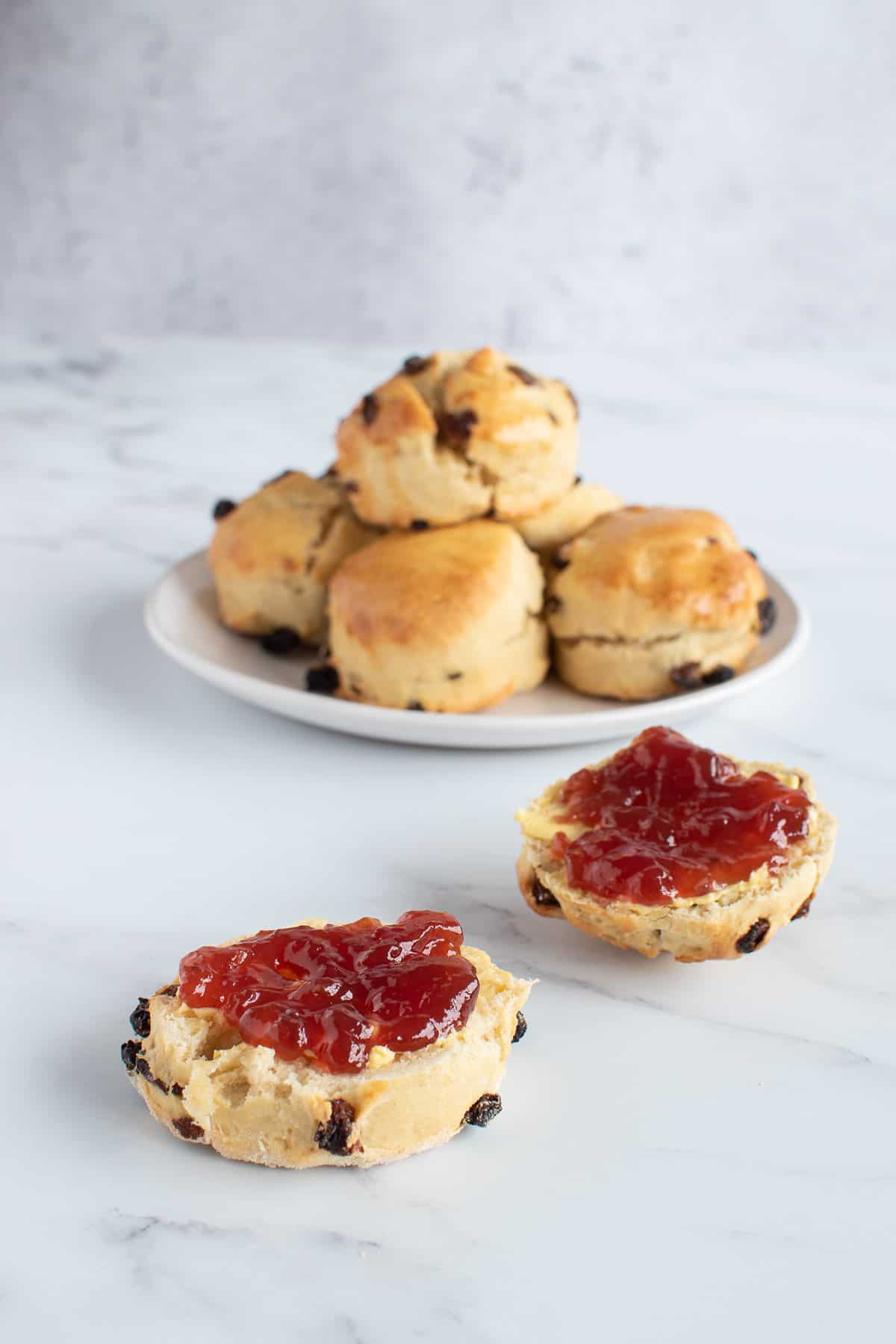
Variations
Dairy free: Use vegan butter, and a vegan milk substitute like oat milk or soy milk.
Egg free: Omit the egg, as it is completely optional to use. If you omit the egg, and follow the dairy free instructions, you will make vegan scones.
Replace sultanas: If you prefer other types of dried fruit, you can replace the sultanas with currants, raisins, diced dried apricots, cranberries and more. You can also use a combination of these.
Self-raising flour: If you use this instead of plain flour, you can omit the baking soda, and only use 1 teaspoon baking powder. This is because the self-raising flour already contains the rising agents.
Equipment
To make scones, you will need a mixing bowl to make the dough. You will also need scone cutters to cut the dough into the correct shapes.
You will need a baking sheet to cook the scones on, as well as a cooling rack to cool them off on.
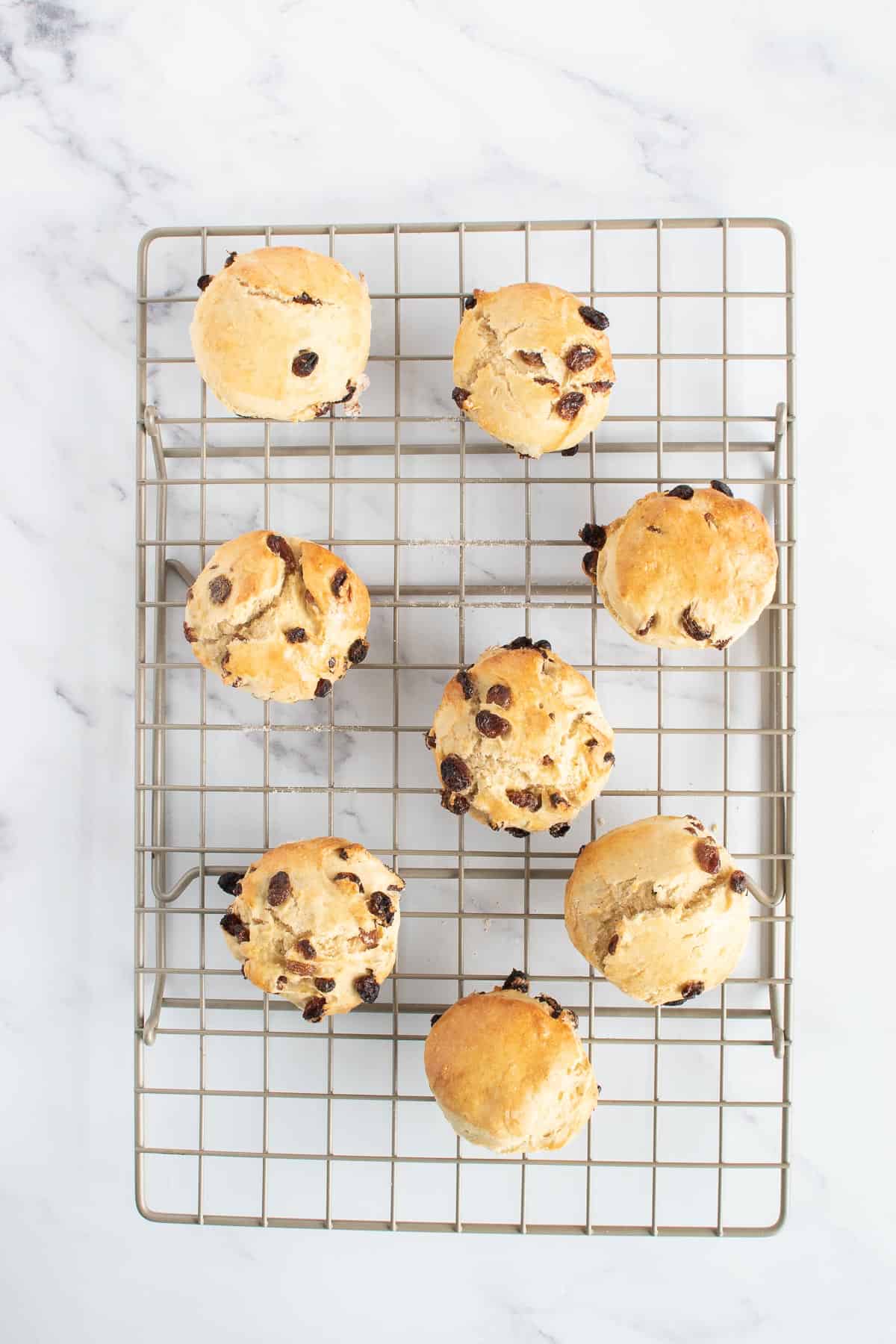
Storage
Scones can be stored in a sealed container at room temperature for up to 2 days. You can also freeze them for up to 3 months.
Make a big batch of sultana scones, and freeze what you don't need. You can then thaw scones whenever you want to eat them. Defrost the scones on a kitchen counter at room temperature for a few hours, or in a microwave that has a defrost setting.
Frequently asked questions
To get fluffy scones, you have to use enough baking powder, and be careful not to over work the dough. If you knead the dough too much, the scones will be more dense.
To make great scones, you should work the dough as little as possible, cook them on a preheated baking sheet, and stamp the scones out with a straight cutter, without twisting the cutter around.
The dough should be dry enough to work, but quite sticky. The dough is then worked on a floured surface to prevent it from sticking too much until the scones are transferred onto the baking sheet.
You might also like these recipes
- Eggless Pancakes
- Blueberry and White Chocolate Muffins
- Lussekatter
- Quark Pancakes
- Chocolate Protein Pancakes
- Raspberry Turnovers
- Zucchini Slice
- Pumpkin Zucchini Muffins
If you make this recipe, make sure to post a photo to Instagram with #hintofhealthy!
Recipe
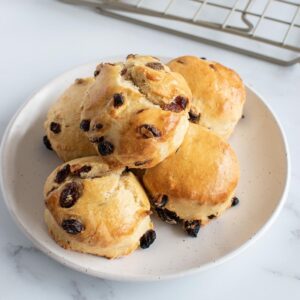
Sultana Scones
Equipment
- Cookie Cutters
Ingredients
- 2 ½ cups all-purpose flour
- 6 tablespoons butter
- ½ cup sultanas
- ¾ cup milk
- 2 tablespoons sugar
- 2 teaspoon baking powder
- 1 ¼ teaspoon baking soda (bicarbonate of soda)
- ¼ teaspoon salt
- 1 egg (optional)
Instructions
- Place a baking sheet covered with parchment paper in the oven, and preheat to 425 F / 220 C. The oven and baking sheet should both be preheated for the best results.
- In a mixing bowl, add the salt, baking powder, baking soda and sugar to the flour. Stir to incorporate the ingredients evenly.2 ½ cups all-purpose flour, 2 tablespoons sugar, 2 teaspoon baking powder, ¼ teaspoon salt, 1 ¼ teaspoon baking soda
- Add soft butter to the dry ingredients. Crumble the butter into the flour with your hands, until incorporated well.6 tablespoons butter
- Create a well in the middle of your flour mixture. Add milk. Use a dough scraper, spatula or wooden spoon, and stir to quickly combine the liquid with the dry ingredients to form a dough.¾ cup milk
- Add sultanas to the dough. Place the scones dough down on a thoroughly floured surface, and pat it down into a 2-inch or 4 cm thick patty.½ cup sultanas
- Use a dough cutter or cookie cutter to cut out scones. You should be able to cut out 4 scones from the dough. Then, reshape the unused the dough and press into a patty again. You should be able to make 8 scones in total.
- Carefully place your scones on a preheated baking sheet covered with parchment paper. Optionally, brush the top of the scones with a whisked egg. This will give them a lovely golden color.1 egg
- Bake for 10-15 minutes, until the scones are fluffy and golden brown.
Video
Notes
- Use any milk that you like, such as oat milk, soy milk or skim milk.
- Self-raising flour: If you use this instead of plain flour, you can omit the baking soda, and only use 1 teaspoon baking powder. This is because the self-raising flour already contains the rising agents.
- Scones have a better rise if you use solid edge cutters, rather than cutters with a ridged edge.
- Don't over work the dough. Avoid kneading it more than needed, as this could make your scones extra dry or dense.
- Store them for up to 2 days at room temperature, or freeze for up to 3 months.
Nutrition
Food safety tips
- Don't leave food sitting out at room temperature for extended periods
- Never leave cooking food unattended


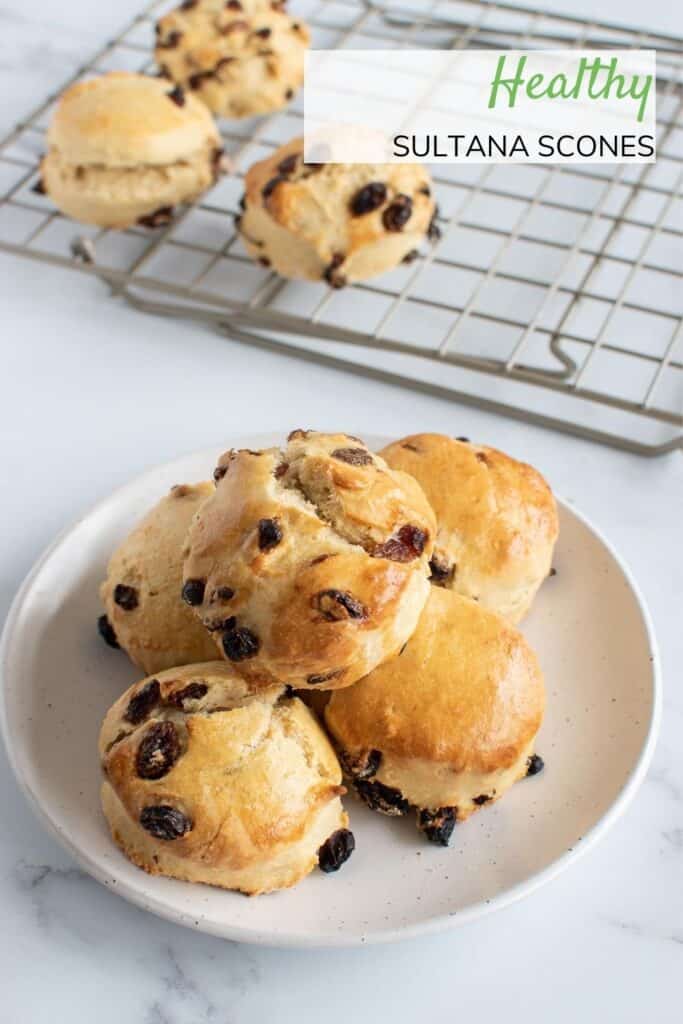

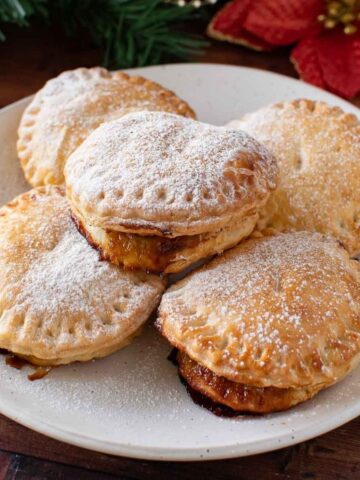
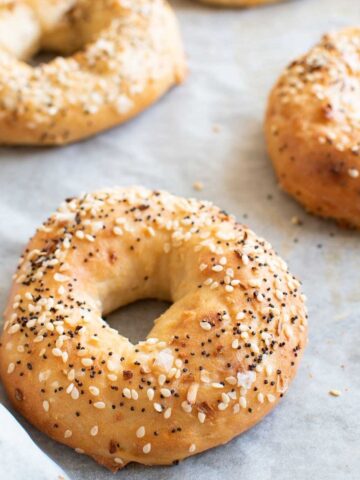
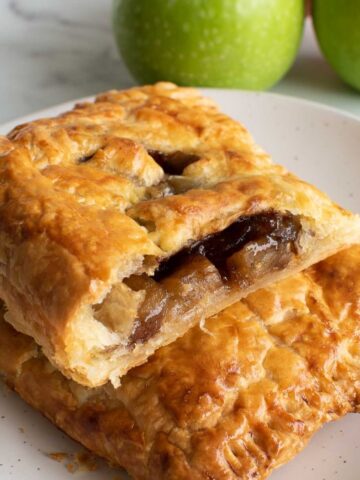
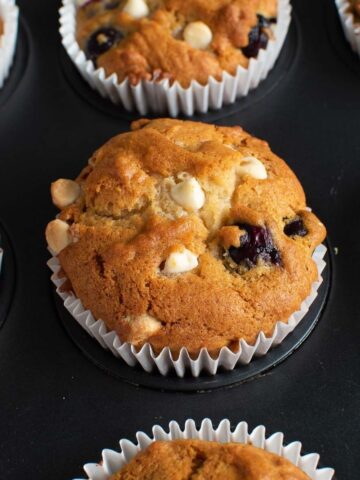
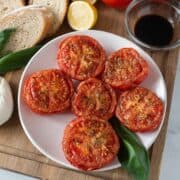


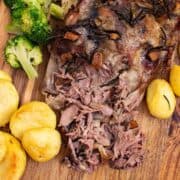
Leave a comment